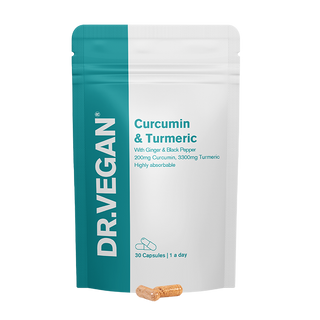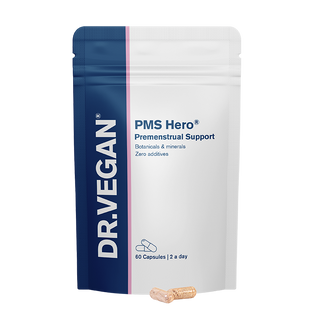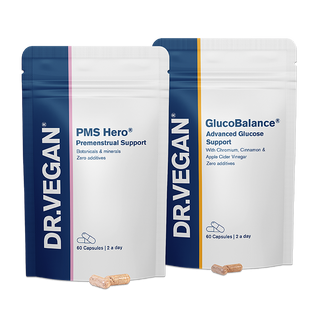What is endometriosis?

Endometriosis is a commonly misunderstood and often undiagnosed condition that affects millions of women worldwide. Approximately 1 in 10 women are affected by endometriosis during their reproductive years, with an estimated 200 million cases globally. Despite its prevalence, diagnosing endometriosis is not easy due to the variety of symptoms and lack of awareness among healthcare providers.
Our experts provide a simple guide to what you need to know about endometriosis, the causes of endometriosis, symptoms and best treatments for endometriosis.
Causes of endometriosis
Endometriosis occurs when cells from the uterus lining grow outside the uterus in other areas of the body, causing a range of symptoms and complications. Research into endometriosis is still relatively limited, so the exact cause of endometriosis remains unclear, however several theories for what causes endometriosis exist, including:
Retrograde menstruation: Retrograde menstruation is when menstrual blood containing endometrial cells flows backwards, into the pelvic cavity instead of leaving the body.
Embryonic cell transformation: This is where hormones including oestrogen may transform embryonic cells into endometrial-like cell implants during puberty.
Surgical scars: Endometrial cells can attach to surgical incision sites, leading to the development of endometriosis.
The four stages of endometriosis
Endometriosis is classified into four stages based on the location, extent and severity of the growths:
- Stage 1 (minimal): Small implants or scars scattered on pelvic organs.
- Stage 2 (mild): More extensive implants on pelvic organs and pelvic lining.
- Stage 3 (moderate): Multiple deep implants and scar tissue in the pelvic cavity.
- Stage 4 (severe): Numerous deep implants, large cysts and severe scarring.
Symptoms of endometriosis
Endometriosis manifests differently in each individual but commonly presents with the up to nine symptoms:- Chronic pelvic pain
- Painful menstruation (dysmenorrhea)
- Pain during or after sexual intercourse
- Heavy menstrual bleeding
- Fatigue
- Infertility
- Digestive issues including diarrhoea, constipation or bloating
- Painful urination or bowel movements during menstruation
- Lower back pain
Curcumin & Turmeric

Conventional treatments for endometriosis
There is currently no conventional ('allopathic') cure for endometriosis, however there are a number of options that aim to manage symptoms and improve quality of life with endometriosis. These include:
- Pain medications (over-the-counter or prescription).
- Hormonal therapy is used to suppress menstruation and reduce endometrial growth.
- Surgery to remove endometrial implants, cysts and scar tissue ('laparoscopy').
- Fertility treatments are available for those trying to conceive.
Supporting endometriosis through diet and lifestyle changes
Certain lifestyle modifications may help alleviate symptoms and support overall wellbeing:
- Maintaining a healthy diet rich in fruits, vegetables and whole grains. If you're not sure what your diet is missing, try our free Diet Profile and find out in 3 minutes.
- Regular exercise helps combat inflammation in the body and improve circulation.
- Stress management techniques including yoga, meditation or deep breathing exercises. You may also be interested in reading 'Foods and vitamins to help relieve anxiety' and 'Foods to help boost energy and reduce stress'.
- Avoiding alcohol and caffeine, which can exacerbate symptoms for some individuals. Discover the 'Best alternatives to caffeine'.
Best supplements for endometriosis
PMS Hero is the award-winning natural supplement for helping PMS symptoms, and is very effective, however there are also other supplements to consider that can help address some of the specific underlying symptoms of endometriosis.
Omega 3 fatty acids
Omega 3s from algae oil possess anti-inflammatory properties that can help with symptoms associated with endometriosis. Omega 3 also influences oestrogen metabolism. Endometriosis is an oestrogen-dependent condition and alterations in oestrogen levels can impact the growth of endometrial tissue. Omega 3s may contribute to a more balanced oestrogen environment. Continue reading why Omega 3 is so good or discover DR.VEGAN's Vegan Omega 3 with 1,000mg Omega oil, providing the optimal dosage of 300mg DHA and 150mg EPA.
Curcumin
A compound found in turmeric, curcumin may help relieve endometriosis symptoms through its ability to relieve oxidative stress. You may be interested in reading 'Why you may be wasting money on Turmeric'.
B Vitamins and Vitamin D
B vitamins, particularly Vitamin B6 and Vitamin B12, support hormone regulation and may support issues including mood swings and fatigue. If you're looking for a high-strength, complete B complex, try UltraEnergy.
Vitamin D supports immune function, potentially benefiting those with endometriosis. Discover how to know if you're deficient in Vitamin D.
Magnesium
Magnesium may help alleviate muscle tension and cramping associated with endometriosis-related aches. Magnesium also plays a role in hormone regulation during menstruation. Continue reading about the benefits of magnesium and how to know if you are deficient.
There are over 12 different forms of Magnesium, some of which you want to avoid, especially magnesium stearate. Magnesium stearate is one the most common nasty additives in supplements - learn more in 7 ingredients in supplements to avoid.
Iron
Heavy menstrual bleeding related to endometriosis can lead to iron deficiency anaemia. Iron supplementation may be necessary to replenish iron stores and alleviate fatigue and weakness. Read '5 things nutritionists wish all women knew' and 'Why is Iron so important, particularly for women?'.
Multi-Vitamins
A high quality daily multi-vitamin, such as the multi award-winning DR.VEGAN Daily Multi-Vitamin, will ensure a supply of all the necessary nutrients that can support with endometriosis and ensure you avoid nutrient deficiencies.
N-Acetylcysteine (NAC)
NAC is an antioxidant that supports liver function and detoxification. It may also help reduce the oxidative stress associated with endometriosis.
Most asked questions about endometriosis
Can you get pregnant with endometriosis?
While endometriosis can affect fertility, many women with the condition conceive naturally or with medical assistance.
Is endometriosis hereditary?
Genetic factors may contribute to the development of endometriosis, but it is not solely hereditary.
Is endometriosis life-threatening?
Endometriosis itself is not typically life-threatening, but complications including, ovarian cysts or infertility may arise.
How painful is endometriosis?
Endometriosis pain varies from person to person but can range from mild discomfort to debilitating agony.
Can endometriosis cause weight gain?
Endometriosis itself does not directly cause weight gain, but hormonal changes or lifestyle factors may contribute to weight fluctuations.
What happens if endometriosis is left untreated?
Untreated endometriosis may lead to worsening symptoms, infertility and potential complications including ovarian cysts or adhesions.
What can make endometriosis worse?
Factors such as stress, certain foods, hormonal fluctuations and a lack of treatment can exacerbate endometriosis symptoms.
Can period pain be endometriosis?
While period pain is a common symptom of endometriosis, not all women with period pain have the condition.
You may also enjoy reading:
- Period blood explained
- What is period poo?
- The surprising life impacts of PMS
- What PMS type are you?
- Nutrition for PMS symptoms
Discover our range of award-winning vegan supplements and probiotics.
Want to hear more from our nutritionists? Sign up to our email newsletter for insights and exclusive offers:




















